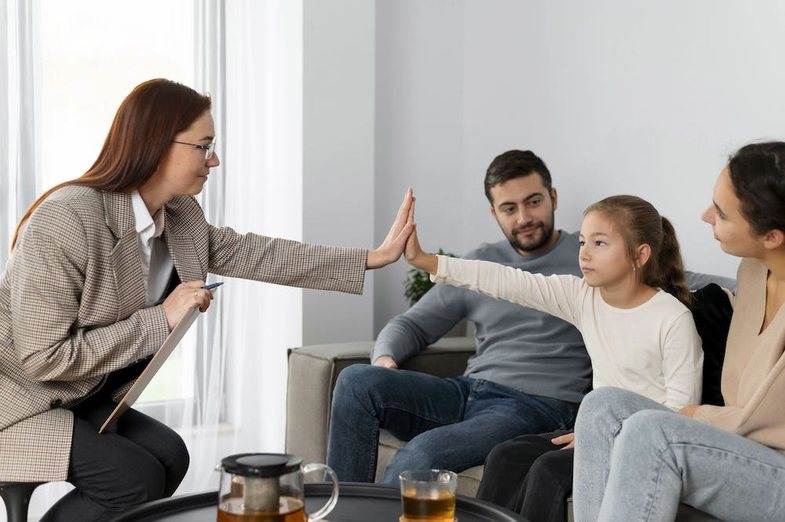
Anytime you're watching a relationship or family comedy and there's a therapy scene, it's guaranteed to provide some of the funniest, most relatable moments in real life. But real life is drama, and therapy sessions can be some of the most uncomfortable and complex things you'll ever do with your family.
"It can actually be ill-advised to invite people to therapy if the timing or situation isn't quite right," says Greg Lamont, clinical director at Juniper Mountain Counseling in Bend, Oregon.
Therefore, before making the decision for such sessions with the family, reflect on the main challenges you are facing.
"If the main topics you want to discuss are self-care or performance at work, focusing on yourself in addition to family therapy will probably be more helpful for you," says Lamont.
On the other hand, if you are experiencing frequent conflicts with your family – be it parents, brothers, sisters, or children – the next important question is: Do they also believe that there is a problem between you? Ask directly if you can't answer for sure.
"In any case, you can't go wrong starting with individual therapy," says Lamont, as it usually offers tools for emotional regulation that can help you navigate relationship problems.
After that, bringing a relative to therapy may be a better way to get to the root of the problem, but start with individual therapy first. If you are advised that someone else should be part of the therapy, you better invite him, because you alone cannot change the situation.
However, the more people who come into these sessions, the more complicated things can get before you can fix the issues between you, notes Tory Eletto, licensed marriage and family therapist, adding that this decision can limit your improvement. personal by focusing too much on others.
For this reason, rather than pursuing ongoing family therapy, Lamont suggests inviting family members to a few sessions with your therapist, who can help introduce your good intentions and communicate on your behalf. Your therapist may refer you as a couple or family to another, more specialized clinician if they feel that a few individual sessions may not be enough.
So if you have a relative who is adamant that they don't need therapy, take a breath and know that it's so common, especially among men, to refuse or fear professional help. (Statistics vary, but most show that women are about twice as likely as men to seek therapy.)
"Remember that our behaviors are always self-protective," says Vienna Pharaon.
"Instead of taking any rejection or lack of interest as a sign that they're not interested in a relationship with you, you need to figure out what's stopping them from wanting to join you."
Some people think that therapy will make things worse by bringing out hidden events, or that they will be exposed to a negative situation (perhaps because they were bullied as children).
"Seeing others through their point of view can lead to common ground, which is an opportunity to build communication with each other," explains Pharaon.
At this point, it might be easier to agree to a joint session so they can at least try it out before they judge.
Another trick? Help them get an accurate idea of ??how a podcast or book might work, especially one involving celebrities they admire. There are many alternatives, but don't forget that only one session is enough to start "collapsing" baseless fears.
Suggested articles:





